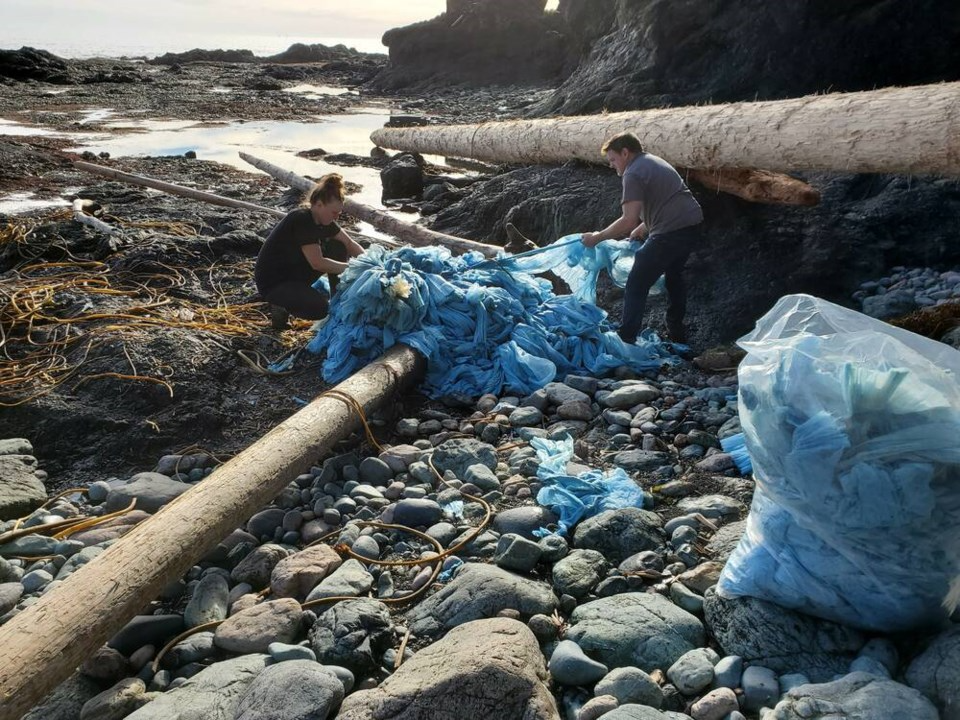Metro Vancouver residents won't be able to water their lawns starting Friday as the region brings in new water restrictions to conserve drinking water. The region is activating Stage 2 watering restrictions starting Aug 4, as much of the province continues to experience hot, dry temperatures and significant drought conditions. The regional district says this is the first time restrictions have been raised beyond Stage 1 since 2015 when there was a low snowpack and dry conditions.
As spring temperatures rise, so do flood risks. Here’s how to prepare
Flooding is becoming a greater hazard across Canada, according to experts, and poses a threat to more and more homeowners. Now, with temperatures rising and snowpacks melting, the risk of flooding can be high in certain areas. Most of southern B.C. is currently under high stream flow advisories amid wet weather that Global News chief meteorologist Anthony Farnell said could last the next couple of weeks, posing a potential flood risk.
Climate change causing more frequent warm winter temperatures: extreme weather expert
Climate change is causing mild winter temperatures to become more frequent across the country, one extreme weather expert says. Parts of southern Ontario have seen unseasonably warm temperatures and rainfall warnings in recent days, with some local conservation authorities warning the public to stay away from waterways as water levels are expected to rise due to rain and melting snow.
Mid-Island beaches feeling effects of king tide
“We had a storm surge as well, which added to that. The storm surge is separate from king tides, it’s a rise in water that happens generated by storms, and this one was generated by a storm off the coast. Those two factors together gave us some pretty high water levels on the 27 (of Dec.). “ Charbonneau said the tides are expected to diminish over the next few days, and shouldn’t be as high as what was seen on Tuesday. Southeastern winds and storm surges are also factors in increasing the size of waves.
Huge Fraser River ice chunks wash up in Agassiz, B.C.
An earth sciences professor says large chunks of ice formed in the Fraser River and washed ashore near Agassiz B.C. were likely caused by unseasonably cold weather from earlier in December. They were first spotted on the shores near the Agassiz-Rosedale bridge Wednesday afternoon, which is about an hour and 30 minute drive east of Vancouver.
Weyburn, Sask., to look into provincial assistance program after massive rainstorm Social Sharing
A late-night rainstorm on Monday flooded streets and basements in Weyburn, Sask., causing serious issues for the town. Environment and Climate Change Canada said the local airport recorded 87 millimetres of rain, with other people in the area reporting 97 millimetres. The wet conditions meant flooded streets in the city's downtown and residential neighbourhoods.
As Montreal cleans up from heavy rains, mayor vows to fight off future floods
With the help of volunteers, staff at Resilience Montreal were able to clean while still welcoming about 300 of their clients and serving them breakfast. "It makes a challenging operation more challenging still," Chapman said of Thursday's flooding. According to him, it was Resilience Montreal's fourth flood in the last three years. Eric Hammel, a resident of Montreal's Verdun borough, said his street has been flooded once a year for the last three years. "These are things you don't expect from a city like Montreal," he said. "It's stressful because you anticipate damages if things get worse."
Heavy rain floods parts of Saskatchewan
Roads were flooded and basements were soaked in towns across Saskatchewan on Monday. Terri Lang, a meteorologist with Environment and Climate Change Canada, said the Battlefords area was hit hardest. "They came in with a whopping 100 millimetres. And that was in about six or seven hours," Lang said. Other areas also saw heavy rain. Lang says Rosetown got about 46 mm, but based on models she believes the rainfall totals east of Rosetown could have been much higher.
Video of Canadian stream quickly disappearing beneath ice goes viral
As the temperature dipped to a new low at Squamish in Canada, frazil ice, which is somewhat of a rarity, was captured on camera. In a video in which the rare phenomenon has been captured, it looks as if a stream is instantly disappearing before the eyes as the snow covers the area. Sharing the video on Twitter, one user, Brad Atchison, wrote: “An example of rarely seen Frazil Ice from Shannon Falls in Squamish, BC yesterday morning. The stream disappears instantly before your eyes.” The video has taken the internet by storm.
Port aux Basques mayor says climate change talks needed after another dump of rain
Button says the storms, wind speeds and rainfall in his community are becoming more severe, and he says he feels it's time to have serious conversations about how communities like his can better prepare for a changing climate. Newfoundland and Labrador's government issued a statement saying no significant damage was recorded during Monday night's storm and that work to repair the highway from last week's flooding was ongoing.
Storm hitting Atlantic Canada 'very similar' to what struck B.C.: meteorologist
“It's a very similar storm,” Bob Robichaud, a senior Environment Canada meteorologist based in Nova Scotia, told CTVNews.ca in a phone interview. “It's the same type of atmospheric setup that would generate this type of rainfall.” He explained that this type of extreme rainfall event, like the one in B.C., occurs when a “very concentrated plume of moisture in the atmosphere that streams up from the tropics” becomes part of a storm.












